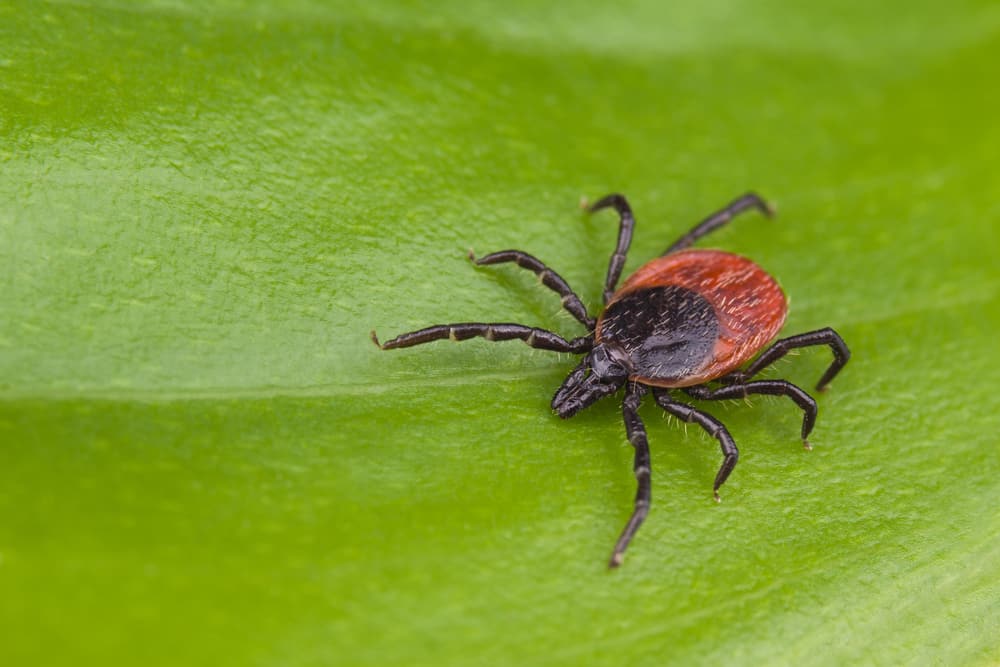Lyme disease is the most commonly reported tick-borne illness in the United States and the worldwide burden of Lyme disease has increased in recent years, extending into much of central Europe and parts of Asia. The disease, which presents as an autoimmune disorder, is caused by the bacterium Borrelia burgdorferi. Up until very recently, all efforts in developing a Lyme vaccine have focused on the pathogen, such as Pfizer and Valneva’s candidate currently in phase 2, VLA15, which is a multivalent protein subunit vaccine targeting the outer surface protein A of B. burgdorferi. A new mRNA vaccine, however, may introduce a novel way to prevent the transmission of Lyme disease and other tick-borne illnesses: rather than target the pathogen, researchers hope to train the immune system to respond to the presence of tick saliva.
Leveraging a Weakness
To transmit the bacterium to human hosts, ticks need to bite and embed in the skin for at least 36 to 48 hours – a feat that is made possible because a deer tick bite is often painless and undetectable. Erol Fikrig, Professor of Medicine and of Microbial Pathogenesis at the Yale School of Medicine and Professor of Epidemiology at the Yale School of Public Health, and his colleagues have developed a vaccine that trains the immune system to respond to tick bites by exposing it to 19 proteins found in tick saliva. The vaccine contains mRNA molecules that instruct cells to make these proteins, in the same way that mRNA COVID-19 vaccines direct cells to make spike proteins from SARS-CoV-2.
“This approach potentially offers more broad-based protection than a vaccine that targets a specific pathogen,” said Fikrig, referring to other tick-borne illnesses such as anaplasmosis and babesiosis. “It could also be used in conjunction with more traditional, pathogen-based vaccines to increase their efficacy.”
The desired immune response of this new vaccine is skin irritation – redness and itch – so the unwitting host becomes aware of the presence of the tick. Researchers at Yale University and the University of Pennsylvania reported on the vaccine’s efficacy in guinea pigs in Science Translational Medicine in November 2021. They hope the finding will pave the way for clinical trials in humans.
“The vaccine enhances the ability to recognize a tick bite, partially turning a tick bite into a mosquito bite,” Fikrig said. “When you feel a mosquito bite, you swat it. With the vaccine, there is redness and likely an itch so you can recognize that you have been bitten and can pull the tick off quickly before it has the ability to transmit B. burgdorferi.”
Enabled by mRNA Vaccine Technology
Like the mRNA COVID-19 vaccines, the Lyme vaccine uses a lipid nanoparticle vehicle to carry the modified mRNA. The vaccine contains nucleoside-modified mRNAs encoding 19 Ixodes scapularis saliva proteins (19ISP). Two weeks after vaccination, the guinea pigs developed antibodies against 10 of the 19 proteins.
For the trial, the researchers attached Lyme-infected ticks on two sets of guinea pigs: one that was vaccinated and an unvaccinated control group. The vaccinated guinea pigs developed a reaction much faster than the non-immunized group. The infected ticks were removed once the guinea pigs developed inflammation or rash, usually around 18 hours later. None of the vaccinated guinea pigs contracted Lyme disease while around half of the unvaccinated guinea pigs did.
When the ticks were left to fall off on their own, they detached from the vaccinated guinea pigs within 48 hours and consumed less blood from their hosts. Conversely, 80 percent of the ticks on the unvaccinated group held on for more than 96 hours before detaching, allowing more than enough time for B. burgdorferi to slip into the bloodstream.
A Promising Start, But a Long Road Ahead
Researchers need to evaluate the immune response to the tick saliva proteins in other animals before progressing to human trials, but it’s not a competitive race to market. Thanks to the unique approach in targeting the proteins in tick saliva, the mRNA vaccine could possibly work in conjunction with traditional, pathogen-based vaccines for an even greater level of protection.
Did you enjoy this blog post? Check out our other blog posts as well as related topics on our Webinar page
QPS is a GLP- and GCP-compliant contract research organization (CRO) delivering the highest grade of discovery, preclinical and clinical drug research development services. Since 1995, it has grown from a tiny bioanalysis shop to a full-service CRO with 1,100+ employees in the U.S., Europe and Asia. Today, QPS offers expanded pharmaceutical contract R&D services with special expertise in neuropharmacology, DMPK, toxicology, bioanalysis, translational medicine and clinical development. An award-winning leader focused on bioanalytics and clinical trials, QPS is known for proven quality standards, technical expertise, a flexible approach to research, client satisfaction and turnkey laboratories and facilities. Through continual enhancements in capacities and resources, QPS stands tall in its commitment to delivering superior quality, skilled performance and trusted service to its valued customers. For more information, visit www.qps.com or email [email protected].






